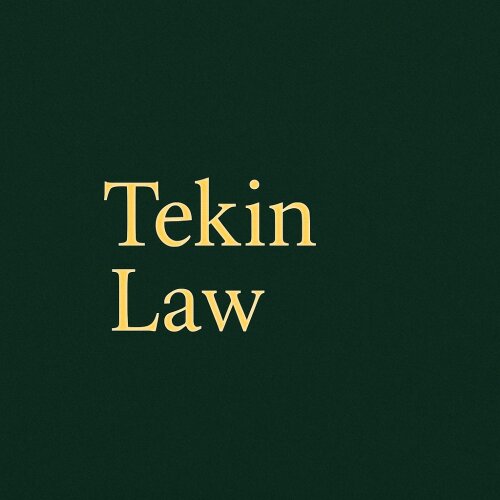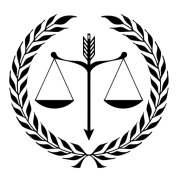Best Restructuring & Insolvency Lawyers in Turkey
Share your needs with us, get contacted by law firms.
Free. Takes 2 min.
Or refine your search by selecting a city:
List of the best lawyers in Turkey
Legal guides written by Tekin Law Firm:
- Arbitration in Turkey
About Restructuring & Insolvency Law in Turkey
Restructuring and insolvency law in Turkey deals with legal processes and rules designed to address businesses or individuals facing financial distress or insolvency. These laws provide a framework for both debtors and creditors, helping manage situations where debts cannot be paid on time or restructuring is required for financial recovery. The goal is often to protect the interests of creditors while giving debtors a chance to resolve their financial problems, whether through reorganization, settlement, or liquidation procedures.
Why You May Need a Lawyer
Many situations can prompt the need for a restructuring and insolvency lawyer in Turkey. Common scenarios include:
- Your company is struggling to meet its financial obligations and needs to restructure its debts.
- You have received payment orders, enforcement proceedings, or bankruptcy filings against your business.
- You want to initiate restructuring before insolvency proceedings become necessary.
- You are a creditor seeking to recover debts from an insolvent debtor.
- You need to understand your rights and obligations under Turkish insolvency procedures.
- You are a shareholder or director concerned about potential personal liability arising from insolvency.
- You want to negotiate with creditors to avoid bankruptcy or liquidation.
Navigating financial distress and legal procedures without proper guidance can lead to negative outcomes. An experienced lawyer can help you understand your options, ensure compliance with Turkish laws, and work towards the most favorable solution for your circumstances.
Local Laws Overview
Turkish restructuring and insolvency law is mainly regulated by the Turkish Commercial Code and the Enforcement and Bankruptcy Law. Key aspects include:
- Types of Proceedings: Turkey recognizes bankruptcy (if a debtor is unable to pay debts), concordat (restructuring through creditor agreement), and restructuring of capital companies or cooperatives.
- Bankruptcy: Creditors or debtors can initiate bankruptcy proceedings. Once declared bankrupt, the debtor's assets are liquidated for distribution among creditors.
- Concordat: A formal process enabling debtors to propose a payment plan to creditors, seeking protection from bankruptcy. Approval requires creditor and court consent.
- Restructuring by Agreement: Capital companies and cooperatives in financial distress may apply for restructuring through an arrangement supervised by the court.
- Creditor Rights: Creditors can file claims, participate in meetings, and challenge certain debtor transactions.
- Moratorium and Suspensions: Courts may grant moratoriums, temporarily halting enforcement actions against the debtor.
- Liability: Company directors and shareholders may have certain duties during financial distress, and failure to comply can result in personal liability.
Legal procedures can be complex and time-sensitive. Understanding the implications and requirements of each process is essential for protecting your interests.
Frequently Asked Questions
What is insolvency under Turkish law?
Insolvency occurs when a debtor cannot pay its debts as they fall due or is over-indebted. Both individuals and businesses can be declared insolvent, leading to legal proceedings for asset liquidation or restructuring.
What are the main insolvency procedures in Turkey?
The primary procedures are bankruptcy, concordat (court-approved restructuring), and restructuring of capital companies or cooperatives. The appropriate process depends on the legal entity and the financial situation.
Who can apply for bankruptcy in Turkey?
Both debtors and creditors can apply to the court for the bankruptcy of a business or individual. The applicant must provide evidence that the debtor is unable to pay debts.
What is a concordat?
A concordat is a restructuring process where a debtor proposes a repayment plan to creditors. If enough creditors and the court approve, the concordat becomes legally binding and protects the debtor from bankruptcy proceedings.
Is there a way to restructure debt without going bankrupt?
Yes, Turkish law provides for concordat and restructuring of capital companies or cooperatives, which aim to allow a debtor to reorganize and continue operations instead of facing liquidation.
What happens to a company's assets during bankruptcy?
Once bankruptcy is declared, all enforcement actions are suspended. A trustee (administrator) is appointed by the court to manage and liquidate the assets, which are distributed among creditors according to legal priority.
Can creditors challenge actions taken by the debtor before bankruptcy?
Yes, creditors may contest transactions made before insolvency if they believe the actions harmed creditor interests, such as fraudulent transfers or preferential payments.
What liabilities do company directors have in insolvency?
Directors are required to act in the best interest of creditors during financial distress. Failing to meet these duties or engaging in wrongful trading can lead to civil or even criminal liability.
How long do insolvency and restructuring processes take?
The duration varies depending on the complexity of the case, the number of creditors, and court workload. Processes like concordat have statutory timeframes, but bankruptcy cases can take several months to years to fully complete.
Is professional legal assistance necessary during restructuring or bankruptcy?
While not mandatory in all cases, professional legal help is highly recommended. Proper legal guidance ensures all procedures are followed, rights are protected, and the chance of successful restructuring is maximized.
Additional Resources
- Central Bank of the Republic of Turkey: Publishes reports and statistics related to economic indicators and financial sector health.
- T.R. Ministry of Justice - Enforcement and Bankruptcy Departments: Oversees enforcement offices and provides information on insolvency procedures.
- Local Bar Associations: Can assist in finding qualified lawyers specializing in restructuring and insolvency.
- Union of Chambers and Commodity Exchanges of Turkey (TOBB): Publishes business guides and supports entrepreneurs facing financial challenges.
- Turkish Banks Association: Offers resources and guidance on debt management and creditor negotiations.
- Non-Governmental Organizations (NGOs): Some NGOs provide financial literacy, mediation, and support services for distressed businesses and individuals.
Next Steps
If you believe you or your business may be facing financial distress or insolvency in Turkey, consider the following steps:
- Assess your current financial situation thoroughly and gather all relevant documentation, including contracts, loan agreements, and accounting records.
- Consult a qualified restructuring and insolvency lawyer who understands Turkish law and local court practices.
- Discuss all available options, including out-of-court settlements, court-supervised restructuring, or bankruptcy protection.
- Follow your lawyer’s guidance to ensure legal compliance, protect your assets, and maximize your chance of a successful recovery or orderly resolution.
- If you are a creditor, seek advice on how best to recover debts and protect your rights during the debtor’s insolvency process.
- Stay informed about deadlines and requirements to avoid missed opportunities or negative legal consequences.
Legal situations involving restructuring and insolvency are sensitive and complex. Proactive and informed action, supported by professional advice, is crucial in securing the best possible outcome for your circumstances in Turkey.
Lawzana helps you find the best lawyers and law firms in Turkey through a curated and pre-screened list of qualified legal professionals. Our platform offers rankings and detailed profiles of attorneys and law firms, allowing you to compare based on practice areas, including Restructuring & Insolvency, experience, and client feedback.
Each profile includes a description of the firm's areas of practice, client reviews, team members and partners, year of establishment, spoken languages, office locations, contact information, social media presence, and any published articles or resources. Most firms on our platform speak English and are experienced in both local and international legal matters.
Get a quote from top-rated law firms in Turkey — quickly, securely, and without unnecessary hassle.
Disclaimer:
The information provided on this page is for general informational purposes only and does not constitute legal advice. While we strive to ensure the accuracy and relevance of the content, legal information may change over time, and interpretations of the law can vary. You should always consult with a qualified legal professional for advice specific to your situation.
We disclaim all liability for actions taken or not taken based on the content of this page. If you believe any information is incorrect or outdated, please contact us, and we will review and update it where appropriate.
Browse restructuring & insolvency law firms by city in Turkey
Refine your search by selecting a city.
















